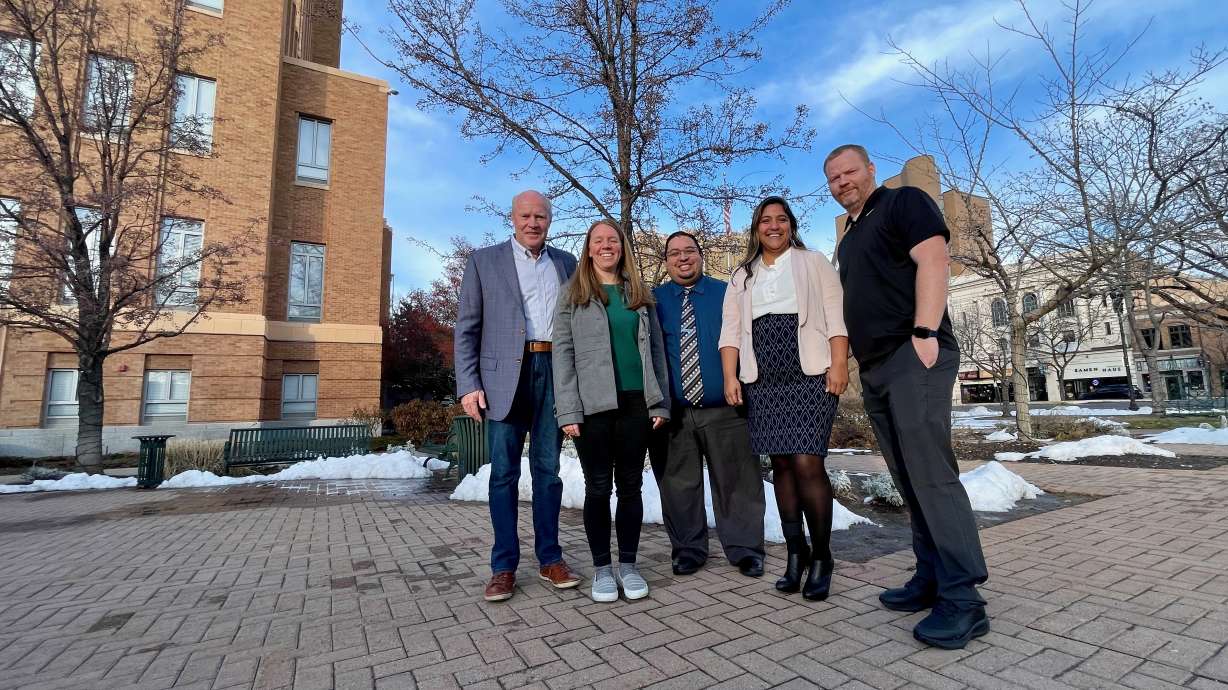Estimated read time: 4-5 minutes
This archived news story is available only for your personal, non-commercial use. Information in the story may be outdated or superseded by additional information. Reading or replaying the story in its archived form does not constitute a republication of the story.
OGDEN — For immigrants, it's one thing — not necessarily an easy thing — to establish legal residency.
Going through the process of becoming a U.S. citizen? That can be a daunting proposition. Many get green cards, establishing residency, and leave it at that.
Now a new program sponsored by the city of Ogden aims to prod those who have taken many of the steps required to become a U.S. citizen but not some of the last key ones — going through the application and interview process.
"We want people to be civically engaged," said Linda Lartigue, diversity affairs coordinator for Ogden and one of the program architects.
The Ogden Citizenship PATH program, as it's known, harnesses the offerings of a range of local agencies in helping program participants cross the finish line in the citizenship process. Notably, participants take the citizenship class that has already been offered through the Weber County Library System, learning the U.S. history they'll need to know as part of the citizenship interview and test. But that's just one part of the new program.
The students will also take part in "field days," when representatives from a cross-section of the community are to meet with them to discuss different aspects of civic life and civic engagement. The pilot installment of the program launched earlier this month with 20 or so students from around Weber County, and among the expected guest speakers will be law enforcement representatives, elected officials, a judge and a Weber County official who will fill the students in on the voting process.
"We are preparing a future citizen to actually be engaged in the community," said Fernando Morales of United Way of Northern Utah. He and Lartigue teamed up in creating the new class, which they believe to be one-of-a-kind in Utah and which they hope to repeat.
Participants with young children are also able to tap into child care offerings through the program so there's one less obstacle to attending citizenship classes. Notably, they'll also be able to get the help of legal experts in filling out the required paperwork to become a citizen and, potentially, funds to cover the $725 cost of filing their N-400 naturalization application.
The city of Ogden, with a notable population of foreign-born residents, has been the key moving force in the initiative. Around 10.6% of Ogden's residents are foreign-born, according to U.S. Census Bureau estimates, a pool that includes both immigrants of varying status and naturalized U.S. citizens. The University of Southern California Equity Research Institute estimates that 3,332 residents from across Weber County are eligible for naturalization.
Other players in the program include the Weber County Library System, United Way of Northern Utah, Catholic Community Services and My Hometown Ogden, which promotes community cooperation and beautification.
Morales is a naturalized U.S. citizen originally from El Salvador and he understands the reticence some may have in completing the citizenship process. Students in the pilot 13-week class have been legal residents for as many as 10 to 30 years in some cases. Some may get complacent; others may not have money to cover the cost of applying for citizenship. More may be daunted at the prospect of learning the required history and going through the citizenship test and interview.
"It's a long process. You go to an interview. You're judged," Morales said.
But the payoff, in Lartigue's view, is worth it. Ogden leaders, she said, are always debating how to get residents involved, and promoting citizenship among the immigrant population is one significant way to do that.
"I think having people in your community be actively engaged just adds to the success of the city as a whole," she said.
Moreover, citizenship opens the door to voting and even running for office. But at a more basic level, in Morales' view, it gives you more of a stake in your new home. PATH in the program title stands for prepare, apply, test and help your community.
"It's about really belonging to your community," Morales said.
To take part in the program, participants must have been legal permanent residents for three to five years, depending on the naturalization category under which they'll apply for citizenship. They have to have a working knowledge of English and be willing to take the oath of allegiance to the United States, which culminates the citizenship process.









